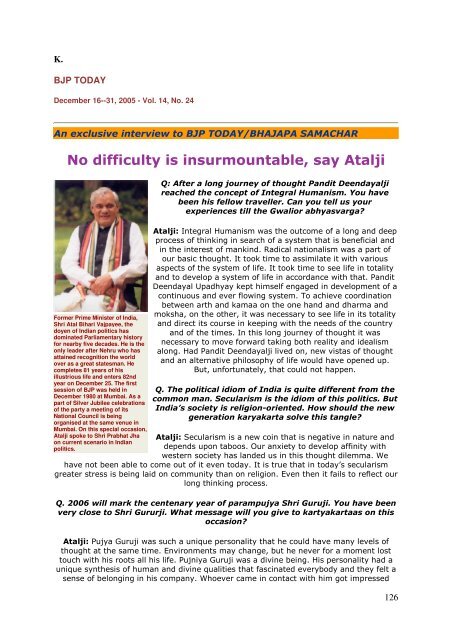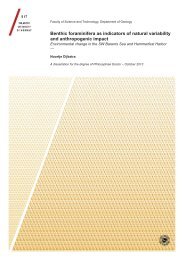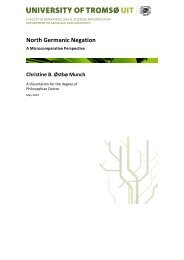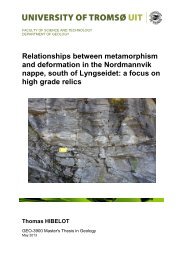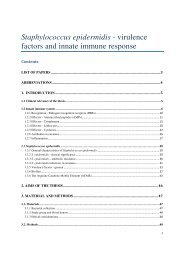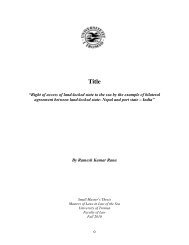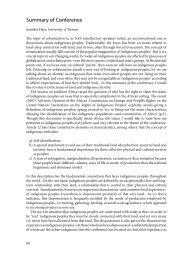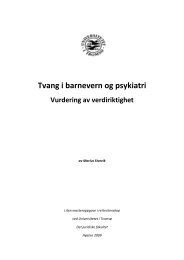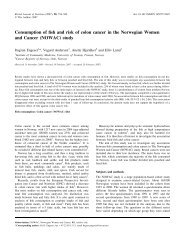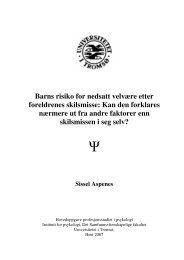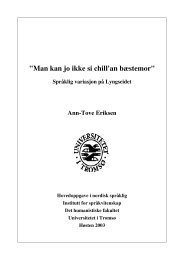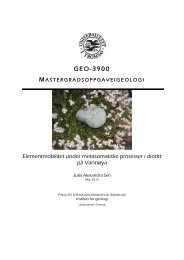Hindutva, Hindunasjonalisme og Bharatiya Janata Party En ...
Hindutva, Hindunasjonalisme og Bharatiya Janata Party En ...
Hindutva, Hindunasjonalisme og Bharatiya Janata Party En ...
Create successful ePaper yourself
Turn your PDF publications into a flip-book with our unique Google optimized e-Paper software.
K.<br />
BJP TODAY<br />
December 16--31, 2005 - Vol. 14, No. 24<br />
An exclusive interview to BJP TODAY/BHAJAPA SAMACHAR<br />
No difficulty is insurmountable, say Atalji<br />
Former Prime Minister of India,<br />
Shri Atal Bihari Vajpayee, the<br />
doyen of Indian politics has<br />
dominated Parliamentary history<br />
for nearby five decades. He is the<br />
only leader after Nehru who has<br />
attained rec<strong>og</strong>nition the world<br />
over as a great statesman. He<br />
completes 81 years of his<br />
illustrious life and enters 82nd<br />
year on December 25. The first<br />
session of BJP was held in<br />
December 1980 at Mumbai. As a<br />
part of Silver Jubilee celebrations<br />
of the party a meeting of its<br />
National Council is being<br />
organised at the same venue in<br />
Mumbai. On this special occasion,<br />
Atalji spoke to Shri Prabhat Jha<br />
on current scenario in Indian<br />
politics.<br />
Q: After a long journey of thought Pandit Deendayalji<br />
reached the concept of Integral Humanism. You have<br />
been his fellow traveller. Can you tell us your<br />
experiences till the Gwalior abhyasvarga?<br />
Atalji: Integral Humanism was the outcome of a long and deep<br />
process of thinking in search of a system that is beneficial and<br />
in the interest of mankind. Radical nationalism was a part of<br />
our basic thought. It took time to assimilate it with various<br />
aspects of the system of life. It took time to see life in totality<br />
and to develop a system of life in accordance with that. Pandit<br />
Deendayal Upadhyay kept himself engaged in development of a<br />
continuous and ever flowing system. To achieve coordination<br />
between arth and kamaa on the one hand and dharma and<br />
moksha, on the other, it was necessary to see life in its totality<br />
and direct its course in keeping with the needs of the country<br />
and of the times. In this long journey of thought it was<br />
necessary to move forward taking both reality and idealism<br />
along. Had Pandit Deendayalji lived on, new vistas of thought<br />
and an alternative philosophy of life would have opened up.<br />
But, unfortunately, that could not happen.<br />
Q. The political idiom of India is quite different from the<br />
common man. Secularism is the idiom of this politics. But<br />
India’s society is religion-oriented. How should the new<br />
generation karyakarta solve this tangle?<br />
Atalji: Secularism is a new coin that is negative in nature and<br />
depends upon taboos. Our anxiety to develop affinity with<br />
western society has landed us in this thought dilemma. We<br />
have not been able to come out of it even today. It is true that in today’s secularism<br />
greater stress is being laid on community than on religion. Even then it fails to reflect our<br />
long thinking process.<br />
Q. 2006 will mark the centenary year of parampujya Shri Guruji. You have been<br />
very close to Shri Gururji. What message will you give to kartyakartaas on this<br />
occasion?<br />
Atalji: Pujya Guruji was such a unique personality that he could have many levels of<br />
thought at the same time. <strong>En</strong>vironments may change, but he never for a moment lost<br />
touch with his roots all his life. Pujniya Guruji was a divine being. His personality had a<br />
unique synthesis of human and divine qualities that fascinated everybody and they felt a<br />
sense of belonging in his company. Whoever came in contact with him got impressed<br />
126


